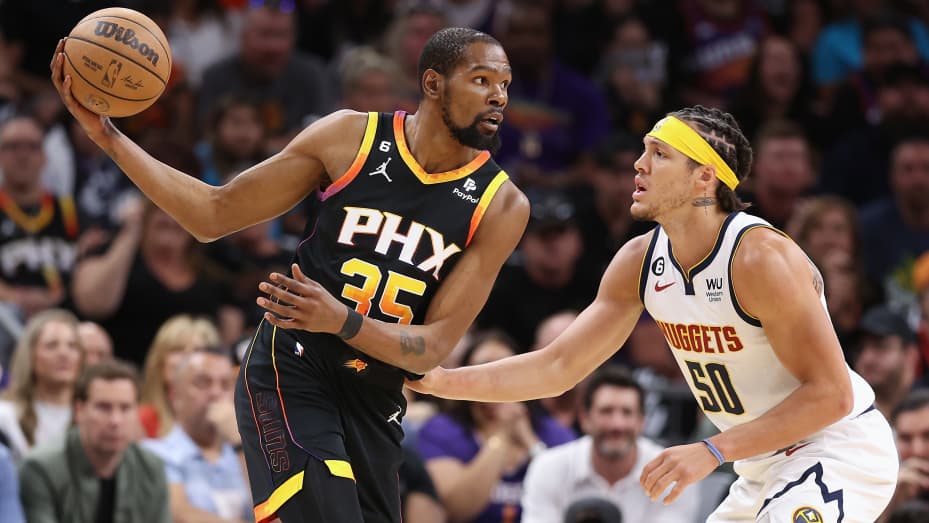Sports have always held a significant place in societies worldwide. Beyond their physical prowess and entertainment value, sports serve as a powerful tool for promoting cultural exchange and understanding among diverse communities. In an increasingly globalized world, where people from various cultural backgrounds come together, sports act as a universal language that transcends boundaries and fosters a sense of unity. This article delves into the multifaceted role of
sports in promoting cultural exchange and understanding, highlighting the ways in which they bridge divides, cultivate mutual respect, and celebrate diversity.
Breaking Down Barriers
One of the most notable aspects of sports is their ability to break down cultural and societal barriers. When people engage in sports, they often do so with a shared purpose and common rules, regardless of their cultural backgrounds. This shared experience creates a sense of belonging and camaraderie that transcends language, religion, and ethnicity.
For example, the
FIFA World Cup, the most-watched sporting event globally, brings together nations from all corners of the world. During this tournament, fans and athletes alike unite to celebrate their love for the game of soccer. The passion and excitement surrounding the World Cup create a unique environment where people from diverse cultures interact, exchange ideas, and form connections. In doing so, they break down preconceived notions and stereotypes, fostering a deeper understanding of each other's cultures.
Cultural Exchange Through Sporting Events
Sporting events provide a platform for nations to showcase their unique cultures on a global stage. Whether it's the
opening ceremony of the Olympics, where countries proudly display their traditions and heritage, or the attire and rituals of athletes during competitions, these events offer a glimpse into the rich tapestry of world cultures.
The 2008 Beijing Olympics is a prime example of how sports can serve as a catalyst for cultural exchange. China's hosting of the Olympics allowed the country to showcase its history, art, and customs to a global audience. The opening ceremony, with its stunning choreography and visual storytelling, captivated viewers worldwide, promoting a greater understanding of Chinese culture.
Furthermore, international sporting events often lead to the exchange of traditions and practices. Athletes and spectators alike have the opportunity to witness different customs, foods, and rituals, sparking curiosity and promoting cultural learning. This exchange of ideas and experiences helps break down stereotypes and fosters a more inclusive and accepting society.
Promoting Cultural Diversity in Sports
In recent years, sports have made significant strides in promoting cultural diversity and inclusivity. Athletes from various backgrounds have risen to prominence, becoming role models and advocates for cultural understanding. These athletes use their platform to challenge stereotypes and promote social change.
For instance, the
NBA (National Basketball Association) has seen an influx of international talent, with players from countries such as Greece, Slovenia, and Australia making a significant impact in the league. These athletes not only bring their unique skills to the game but also share their cultural experiences, helping to broaden the horizons of fans and fellow players.
Simone Biles, one of the most decorated gymnasts in history, has used her fame to shed light on issues of diversity and mental health in sports. Her advocacy has sparked important conversations and encouraged a more inclusive and supportive environment for athletes of all backgrounds.
Sports Diplomacy and International Relations
Sports have long been used as a tool of diplomacy and international relations. Sporting events provide a neutral ground for nations to come together, engage in friendly competition, and build diplomatic bridges. The "ping-pong diplomacy" between the United States and China in the 1970s is a famous example of how sports can thaw icy relations between nations.
More recently, the Winter Olympics in Pyeongchang in 2018 played a role in easing tensions on the Korean Peninsula. North and South Korea marched together under a unified flag during the opening ceremony, signaling a temporary d?tente in their historically strained relationship.
Sports also facilitate people-to-people diplomacy, as athletes and fans interact across borders. These interactions create opportunities for cultural exchange and dialogue that can have lasting positive effects on international relations.
Inspiring Mutual Respect and Tolerance
Participation in sports teaches valuable life lessons, including teamwork, discipline, and respect for opponents. These principles extend beyond the playing field and can contribute to promoting cultural understanding. Athletes and fans alike learn to appreciate the skills and dedication of competitors from different backgrounds.
The "Olympic Spirit," as embodied in the Olympic Charter, promotes respect, friendship, and fair play. Athletes from around the world come together to compete on a level playing field, guided by these principles. This spirit of camaraderie and respect can have a ripple effect, influencing how individuals perceive and interact with people from other cultures in their daily lives.
Grassroots Initiatives and Community Engagement
While international sporting events garner the most attention, grassroots sports play a crucial role in promoting cultural exchange and understanding at the local level. Community sports programs often bring together individuals from diverse backgrounds who might not otherwise interact.
In many urban areas, soccer is a unifying force that transcends cultural and socioeconomic differences. Local soccer leagues, for example, provide a space where children and adults from various backgrounds come together to play and compete. This interaction fosters friendships, breaks down stereotypes, and promotes mutual understanding.
Moreover, many sports organizations and NGOs actively work to promote cultural exchange through sports. Initiatives like "Soccer Without Borders" and "PeacePlayers International" use sports as a tool to bridge divides, build relationships, and promote peace in conflict-affected areas.
Cultural Sensitivity and Inclusivity in Sports Marketing
In the modern era, sports marketing plays a significant role in shaping cultural perceptions and attitudes. Advertisers and sponsors recognize the importance of cultural sensitivity and inclusivity in their campaigns. This awareness has led to more diverse and inclusive representations of athletes and fans in sports advertising.
Brands often feature athletes from various cultural backgrounds in their advertisements, sending a message of inclusivity and diversity. This not only reflects the reality of the sporting world but also contributes to breaking down stereotypes and promoting understanding.
Moreover, sports organizations themselves have taken steps to promote inclusivity. For example, the NFL's "Inspire Change" initiative focuses on addressing social justice issues, including racism and inequality. Such initiatives acknowledge the role of sports in promoting cultural understanding and social progress.
Challenges and Controversies
While sports have the potential to promote cultural exchange and understanding, they are not without their challenges and controversies. Issues such as racism, nationalism, and political tensions can sometimes overshadow the positive aspects of sports. Instances of racial abuse or discrimination in sports, for example, highlight the need for continued efforts to address such issues.
Nationalism and politics can also intersect with sports in complex ways. Sporting events have occasionally been used as a platform for political statements or protests, which can lead to diplomatic tensions. The balance between sports as a unifying force and as a space for expressing political views is a delicate one that requires careful consideration.
Sports have a unique and powerful role in promoting cultural exchange and understanding. They break down barriers, provide a platform for cultural exchange, celebrate diversity, and inspire mutual respect and tolerance. Whether on the world stage of international competitions or in local community programs, sports bring people together and foster connections that transcend cultural differences.
While challenges and controversies exist, the overall impact of sports in promoting cultural exchange and understanding is undeniable. As societies become increasingly interconnected, sports will continue to serve as a universal language that brings people together, encourages dialogue, and celebrates the rich tapestry of human cultures. By recognizing and harnessing the potential of sports, we can work toward a more inclusive and harmonious world.


















